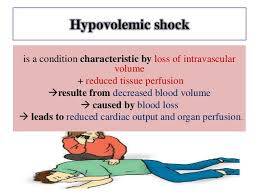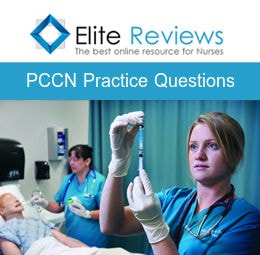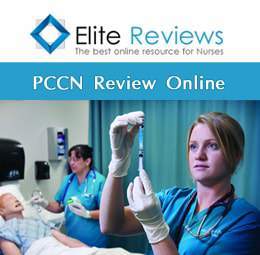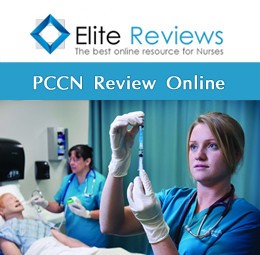PCCN Hypovolemic Shock
PCCN Hypovolemic Shock
Hypovolemic shock is a life-threatening condition that results when you lose more than 20 percent (one-fifth) of your body’s blood or fluid supply. This severe fluid loss makes it impossible for the heart to pump a sufficient amount of blood to your body. Hypovolemic shock can lead to organ failure. This condition requires immediate emergency medical attention.
Hypovolemic shock is the most common type of shock, with very young children and older adults being the most susceptible.
Causes
Hypovolemic shock results from significant and sudden blood or fluid losses within your body. Blood loss of this magnitude can occur because of:
- bleeding from serious cuts or wounds
- bleeding from blunt traumatic injuries due to accidents
- internal bleeding from abdominal organs or ruptured ectopic pregnancy
- bleeding from the digestive tract
- significant vaginal bleeding
- Endometriosis
In addition to actual blood loss, the loss of body fluids can cause a decrease in blood volume. This can occur in cases of:
- excessive or prolonged diarrhea
- severe burns
- protracted and excessive vomiting
- excessive sweating
Blood carries oxygen and other essential substances to your organs and tissues. When heavy bleeding occurs, there is not enough blood in circulation for the heart to be an effective pump. Once your body loses these substances faster than it can replace them, organs in your body begin to shut down and the symptoms of shock occur. Blood pressure plummets, which can be life-threatening.
Signs and Symptoms
The symptoms of hypovolemic shock vary with the severity of the fluid or blood loss. However, all symptoms of shock are life-threatening and need emergency medical treatment. Internal bleeding symptoms may be hard to recognize until the symptoms of shock appear, but external bleeding will be visible. Symptoms of hemorrhagic shock may not appear immediately. Older adults may not experience these symptoms until the shock progresses significantly. Some symptoms are more urgent than others.
Mild symptoms can include:
- headache
- fatigue
- nausea
- profuse sweating
- dizziness
Severe symptoms, which must be taken seriously and warrant emergency medical attention, include:
- cold or clammy skin
- pale skin
- rapid, shallow breathing
- rapid heart rate
- little or no urine output
- confusion
- weakness
- weak pulse
- blue lips and fingernails
- lightheadedness
- loss of consciousness
Complications
A lack of blood and fluid in your body can lead to the following complications:
- damage to organs such as your kidney or brain
- gangrene of the arms or legs
- heart attack
The effects of hypovolemic shock depend on the speed at which you’re losing blood or fluids and the amount of blood or fluids you are losing. The extent of your injuries can also determine your chances for survival. Chronic medical conditions such as diabetes, previous stroke, heart, lung, or kidney disease, or taking blood thinners like Coumadin or aspirin can increase the likelihood that you’ll experience more complications from hypovolemic shock.
Treatment
Once at a hospital, a person suspected of having hypovolemic shock will receive fluids or blood products via an intravenous line, to replenish the blood lost and improve circulation. Treatment revolves around controlling loss of fluid and blood, replacing what’s been lost, and stabilizing damage that both caused and resulted from the hypovolemic shock. This will also include treating the injury or illness that caused the shock, if possible.
These include:
- blood plasma transfusion
- platelet transfusion
- red blood cell transfusion
- intravenous crystalloids
Doctors may also administer medications that increase the heart’s pumping strength to improve circulation and get blood where it’s needed.
These include:
- dopamine
- dobutamine
- epinephrine
- norepinephrine
Antibiotics may be administered to prevent septic shock and bacterial infections.
Close cardiac monitoring will determine the effectiveness of the treatment you receive.
PCCN National Exam Courses
Overview
- Elite Reviews Offers A Variety Of Online Courses That Will More Than Adequately Help Prepare The Critical Care Nurse To Pass The National Exam.
- Each Course Includes Continuing Education Credit and Sample Questions.
Continuing Education
- Each Of Our Online Courses Has Been Approved Continuing Education Contact Hours by the California Board of Nursing
- Login To Your Account In Order To Access The Course Completion Certificate Once The Course Is Complete.
PCCN Free Trial
- FREE Sample Lecture & Practice Questions
- Available For 24 Hrs After Registration
- Click The Free Trial Link To Get Started – PCCN Free Trial
How It Works
How The Course Works
- First – Purchase The Course By Clicking On The Blue Add To Cart Button – You Will Then Be Prompted To Create A User Account.
- Second – After Creating An Account, All 3 Options (90, 120 or 150 Days) Will Be Listed. Select The Option You Desire And Delete The Other Two.
- Third – You Will Be Prompted To Pay For The Review Using PayPal – After Payment You Will Be Redirected Back To Your Account.
- Last – Click The Start Button Located Within Your Account To Begin The Program
- 125 Prep Questions
- Q & A With Rationales
- Approved For 5 CEU’s
- 90 Days Availability
- Cost $75.00
- 1250+ Prep Questions
- Q & A With Rationales
- Approved For 25 CEU’s
- 90 Days Availability
- Cost $200.00
PCCN Practice Questions Bundle
- 1350+ Prep Questions
- Q & A With Rationales
- Approved For 30 CEU’s
- 90 Days Availability
- Cost $225.00
PCCN Review Course
- Option 1
- Lectures & 1250+ Questions
- Q & A With Rationales
- Approved For 35 CEU’s
- 90 Days Availability
- Cost $275.00
- Option 2
- Lectures & 2000+ Questions
- Q & A With Rationales
- Approved For 40 CEU’s
- 90 Days Availability
- Cost $325.00
PCCN Review Course Bundle
- Option 3
- Lectures & 3000+ Questions
- Q & A With Rationales
- Approved For 70 CEU’s
- 90 Days Availability
- Cost $375.00







